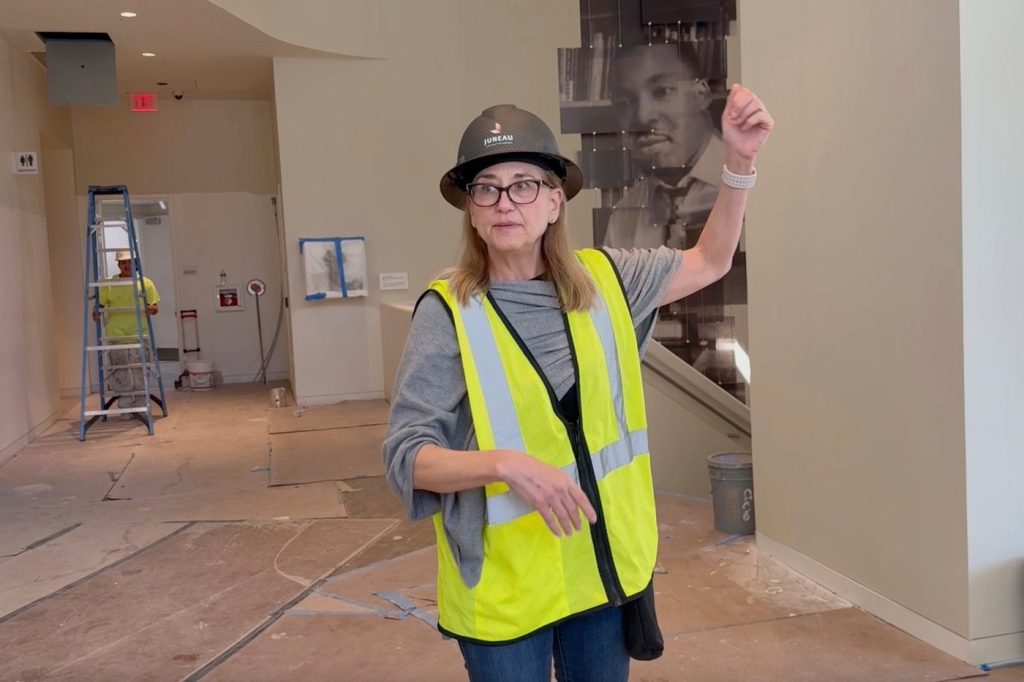ATLANTA (AP) The National Center for Civil and Human Rights in Atlanta is set to expand significantly, marking an important moment in the United States. Unlike federal institutions such as the Smithsonian, this center is privately funded, allowing it to operate independently of governmental influence on historical narratives. The renovation, which has cost nearly $60 million, will introduce six new galleries along with classrooms and interactive experiences designed to transform the center from a static exhibition space into a more dynamic and engaging environment. Jill Savitt, the center’s president and CEO, emphasized the goal of encouraging visitors to actively support civil and human rights, racial justice, and the future of democracy.
Despite challenges posed by the COVID-19 pandemic, the center has maintained its relevance by providing K-12 educational resources that include over 300 online lesson plans, a LGBTQ+ Institute, and specialized training in diversity, equity, and inclusion, among other initiatives. These programs focus on key elements of American history that the Trump administration has sought to undermine, positioning the center as a crucial bastion for educational integrity.
The center, conceived by civil rights leaders Evelyn Lowery and Andrew Young, opened its doors in 2014 on land donated by the Coca-Cola Company, adjacent to landmarks such as the Georgia Aquarium and The World of Coca-Cola. While it gained traction as a tourist attraction, ticket sales have waned in the wake of the pandemic. To combat this decline, the center aims to entice repeat visitors with innovative offerings like "Change Agent Adventure," targeting children under the age of 12. Children will be invited to make pledges to act in ways that promote empathy, justice, fairness, and kindness. This effort will culminate in an exhibit set to open in April.
As Savitt noted, the center seeks to instill a passion for advocacy and change-making in young people, countering the notion that they should be sheltered from difficult truths. Instead, the center strives to share an inspirational narrative that highlights the contributions of activists throughout history in expanding human freedom, underscoring the view that this legacy is fundamental to America’s greatness.
The upcoming exhibit titled "Broken Promises," scheduled to open in December, will delve into the post-Civil War Reconstruction era, illustrating the violent backlash against advancements made by formerly enslaved people. Curator Kama Pierce explained that the exhibit will aim to illustrate the cyclical nature of progress and setback throughout American history. Artifacts will include a Georgia historical marker from the site of the 1918 lynching of Mary Turner, which has been preserved to prevent vandalism, and items from the Martin Luther King Jr. collection, prominently featuring King’s role as a man rather than merely as an icon.
Moreover, the center will shift its focus from showcasing images of notorious dictators like Hitler, Stalin, and Mao to celebrating human rights victories achieved by various global groups. Savitt explained that research indicates a more positive narrative fosters a sense of agency among visitors, motivating them to engage in meaningful action rather than succumb to apathy.
With the expansion, the center aims to enhance the visitor experience, allowing them to immerse themselves in historical events like a 1960s sit-in against segregation. This poignant installation will feature auditory elements simulating an angry mob, followed by a reflection space to process the impactful experience. The expansion has been made possible through contributions from philanthropist Arthur M. Blank, the Mellon Foundation, and various other donors, who have recognized the importance of educating the public about civil and human rights in promoting a robust democracy.
In conclusion, the National Center for Civil and Human Rights is positioning itself not only as a historical reporting ground but as a beacon for future generations to foster a healthy democracy through understanding citizenship and civic responsibilities.











